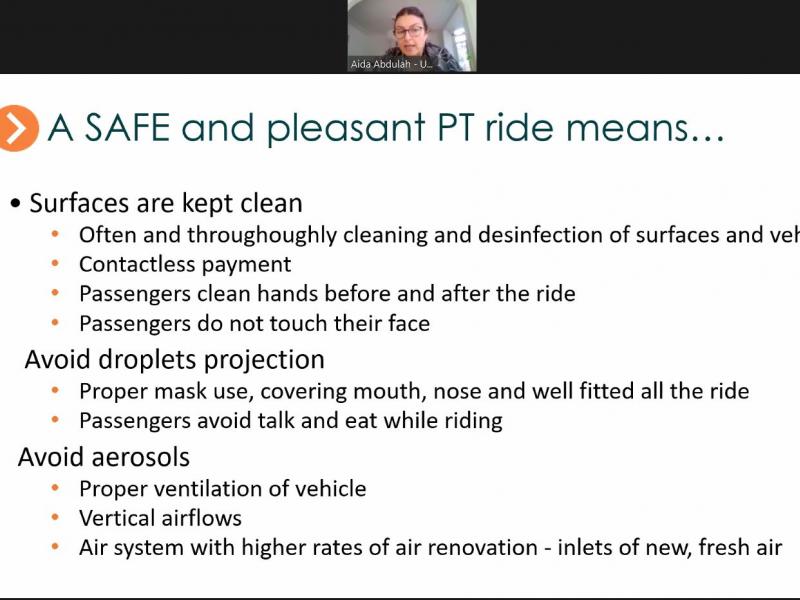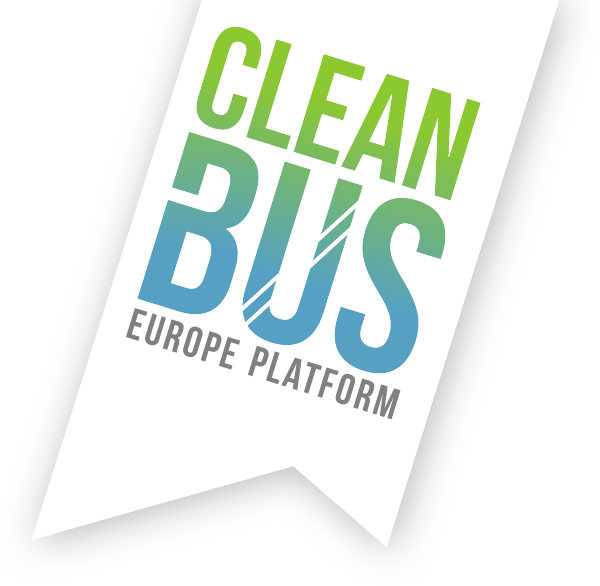Zero emission buses and the green recovery: Clean Bus Europe Platform at first ZEBinar
On 22 September 2020, the first of a series of ZEBinars took place virtually, during the European Mobility Week. Organised in the framework of the ZEB Conference (March 2021 in Paris), this series of webinars covers the key elements of the transition to zero emission.

Titled ‘Zero Emission Buses & the Green Recovery’, this first event provided an overview of the policy framework for zero emission buses, with speakers discussing how zero emission buses can play a part in Europe’s green recovery strategy. The CBEP was presented by UITP K&I Senior Manager Aida Abdulah.
After an opening from Jorgo Chatzimarkakis (Secretary General at Hydrogen Europe) the first speaker was Claire Depré (Head of Unit, DG MOVE), who spoke about the impacts of the coronavirus crisis on public transport and how recovery packages can further support the transition to zero-emission buses. Alongside legal requirements such as the Clean Vehicles Directive and financial support such as the CEF (Connecting Europe Facility), the COVID-19 recovery fund and the Invest EU Programme, technical and administrative support is also essential for the transition: ‘There should be a clear commitment to support public transport authorities and operators and help them recover’.
Support for authorities and operators was also key in Aida Abdulah’s presentation. After a look at today’s bus sector, she spoke about how the sector can gain back passengers' trust in bus services, and what support is needed to cope with reduced ridership and revenues. Again financial support is key here, but another challenge to be met is to further increase the positive image of the urban e-bus. E-buses are key to keeping the urban bus attractive to passengers and cities, due to their environmental friendliness, comfort and innovative nature). The COVID-19 crisis might have shifted operators’ priorities, but we can also use this momentum to change the direction to a real transition towards clean bus fleets - and the Clean Bus Europe Platform is the strategic line of action to develop, implement and support this transition.
Other panelists in the session were Patrícia Vasconcelos (CEO of Portuguese manufacturer CaetanoBus) and Gerrit Spijksma (CEOof Dutch transportation company QBuzz). As manufacturer, Vasconcelos emphasised the importance of developing different classes of vehicles using clean technologies and increasing production and engineering capacity for the transition towards zero-emission.
Gerrit Spijksma highlighted the opportunities and challenges of scaling up zero emission fleets through various examples of hydrogen and electric deployment in the Netherlands.
Conclusions? It is clear that most cities have the political will to support the transition towards zero-emission, but at the same time lack the capabilities and know-how, making a strong case for the Clean Bus Europe Platform and other EU-initiatives on clean bus deployment. At the same time, much progress is currently being made on providing the legal, financial and administrative frameworks to authorities and cities. The tools for the transition are there (or will soon be), now we just need to do it.
You can find all presentations of the ZEBinar, including recordings, here.
